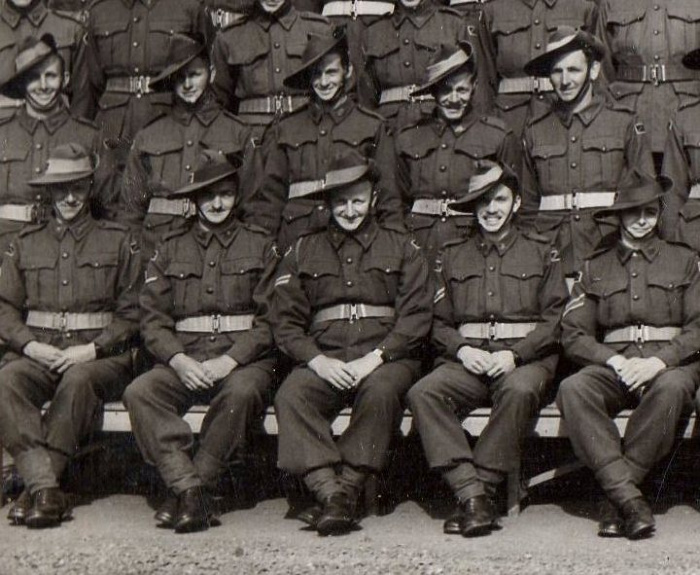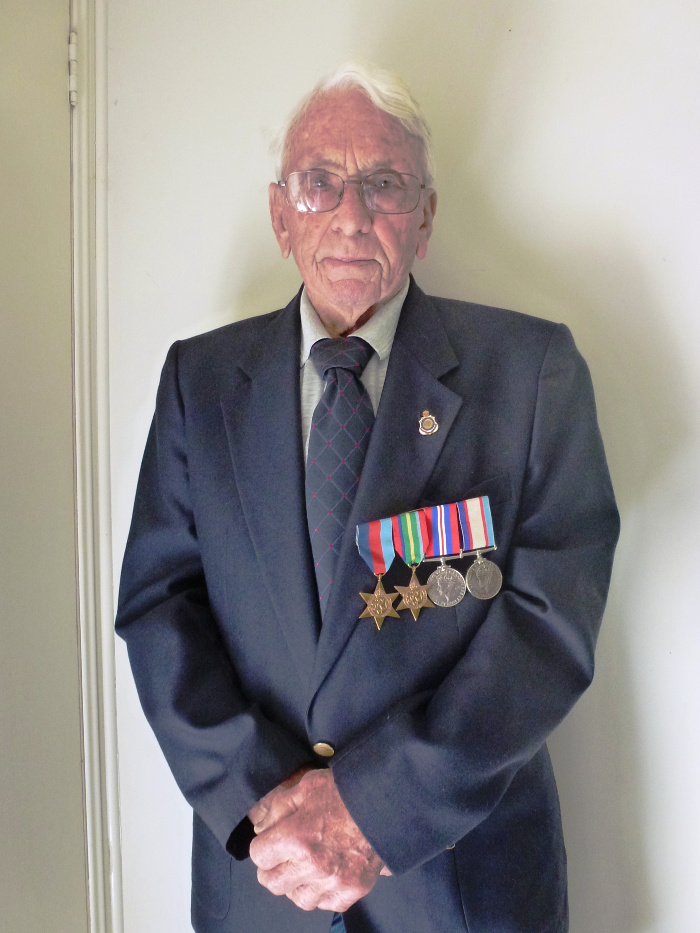
With medals pinned to his chest and a bright red poppy sitting proudly on his jacket, World War II veteran Alan Robinson will pause for a minute’s silence on Sunday in commemoration of the end of the Great War.
It will not be a time of celebration, but a moment of reflection for the former Australian Army soldier, who will join young and old in paying tribute to the millions of brave servicemen and women who sadly lost their lives in battle.
Although each Remembrance Day is important, this November 11, will hold a special significance to descendants of soldiers and veterans of following wars. It was on this day, 100 years ago that Germany called for armistice and World War I was finally brought to an end after a harrowing four years.
With no World War I veterans alive and a dwindling number of World War II veterans, taking that minute’s silence has become all the more important for the remaining soldiers.
Of those is 95-year-old Alan, who first joined the army as an 18-year-old, two years after World War II began. Unlike others who may have had reservations about going to war, the then teenager wanted to be among the action and fight for his country.
So after graduating high school and only 15 days after he began his first job in the lands department with the Tasmanian Government, Alan was called upon by the army and posted to an anti-aircraft battery where he undertook training.
It wasn’t long before he had his first taste of conflict, travelling from his home state of Tasmania to Sydney to test anti-aircraft guns. It was 1942, and only a few days after submarines belonging to the Imperial Japanese Navy had attacked Sydney Harbour, striking the Kuttabul ferry and killing 19 Australian and two British soldiers.
Just days later, the Japanese subs attacked again. Their target was believed to be the Rose Bay Air Base, but they fell short, their shells instead exploding near a block of flats and onto a Bondi street, leaving a gaping hole in the ground.
“We were going from Randwick over to Rose Bay for training where there was a gun site on the golf links there,” Alan told Starts at 60. “When we arrived we saw some of the shells from the submarine had landed on the golf course, one of them had knocked the corner off one of the flats.”

Fortunately for Alan, this was the extent of his contact with the enemy. However, he still played an important part in the war as he joined a unit in Papua New Guinea. Stationed in Port Moresby, Alan and his team worked making dummy gun sites and using radars to track hydrogen balloons to collect wind layer data for the airforce.
In July of 1944, his time in combat ended as he sailed out of Port Moresby on American troop transport. It was his 21st birthday.
After ending his time with the army, Alan married Mary and together they had two daughters. He worked as a surveyor in South Australia and Victoria and spent much of his time involved with the RSL.
Sadly in 1974, Mary died of a brain tumour, which of course caused much pain and heartache for Alan and his family. But determined to press on with life, the veteran spent the first part of his retirement travelling the country. Some 10 years later, he was introduced to his now wife, Carolyn, and now 33 years later they are living happily in Queensland.
While his time at war wasn’t as confrontational as others, Alan still understands the pain felt by fellow soldiers upon returning home.
“I didn’t have much contact with the enemy,” he explained. “But I do sit and think sometimes how I will never see some of my friends again. My oldest friend, who I met when I was a child, was in the airforce, and while he did survive, I think the war had a big effect on him.”

With the number of living veterans dwindling, Alan said he and his fellow vets worry about what will happen with Remembrance Day and Anzac Day once they’re gone. However, he is sure those who fought bravely for their country will never be forgotten.
As the school contact officer for his local RSL, Alan said children will play an important role in keeping the spirit of the soldiers alive into the future.
“The youth are learning a lot more about World War I and II and often participate in their local marches,” he explained. “The more senior students in particular spend quite a bit of time educating themselves on the war, with some researching soldiers who lived in their area.
“It’s nice to go and see the children. I always try and keep my explanations of the war at a reasonable level so they get a better understanding of what happened.”
Still in good spirits, and having lived what he describes as a full life, Alan said he will, for as long as he can, pay tribute to his fellow soldiers on Remembrance Day.
“Remembrance Day to me is a reflective day, a peaceful event to think about the fallen,” he said. “This year I will pay my respect by laying a wreath at the war memorial. It will be a special moment.”